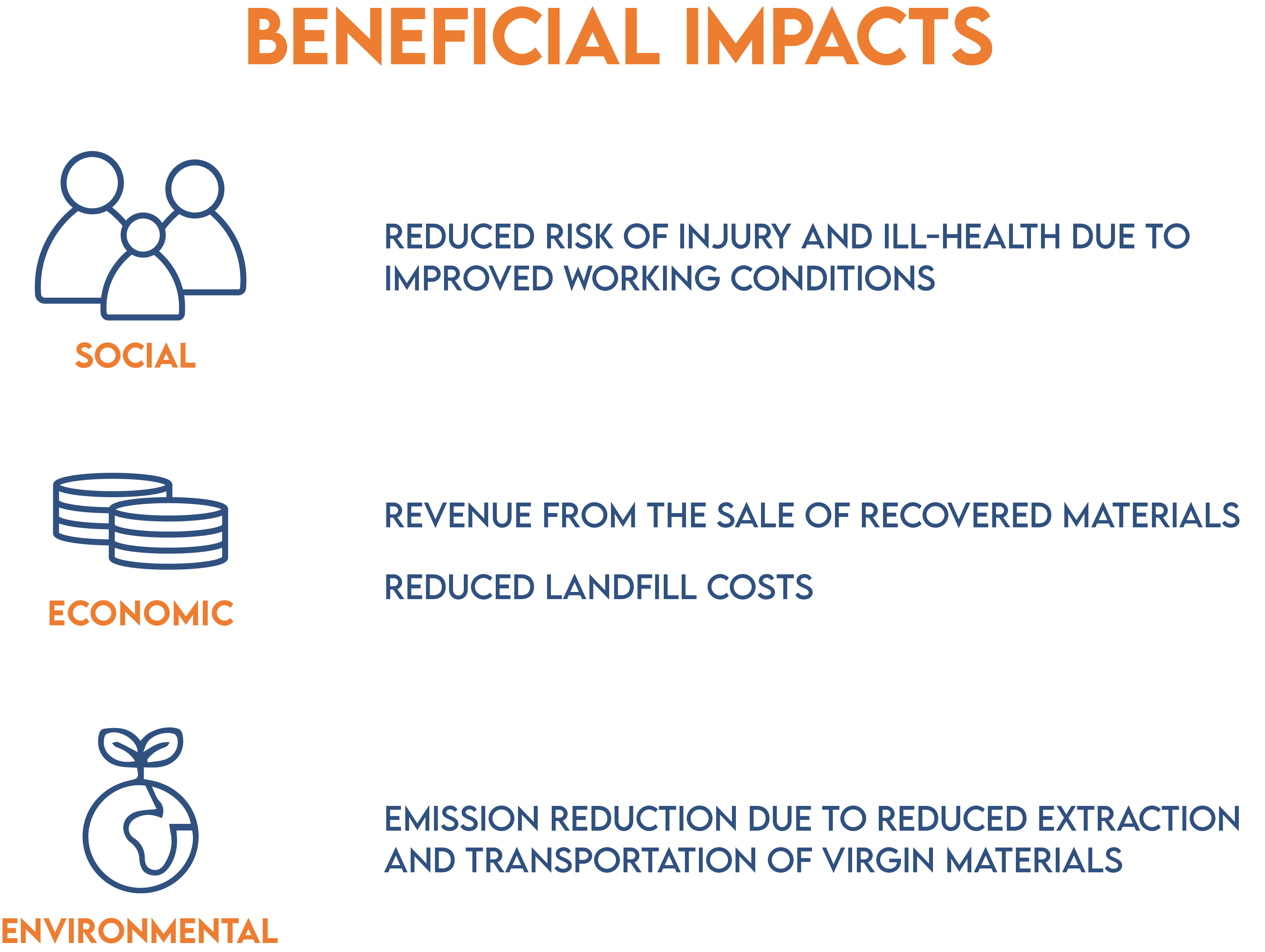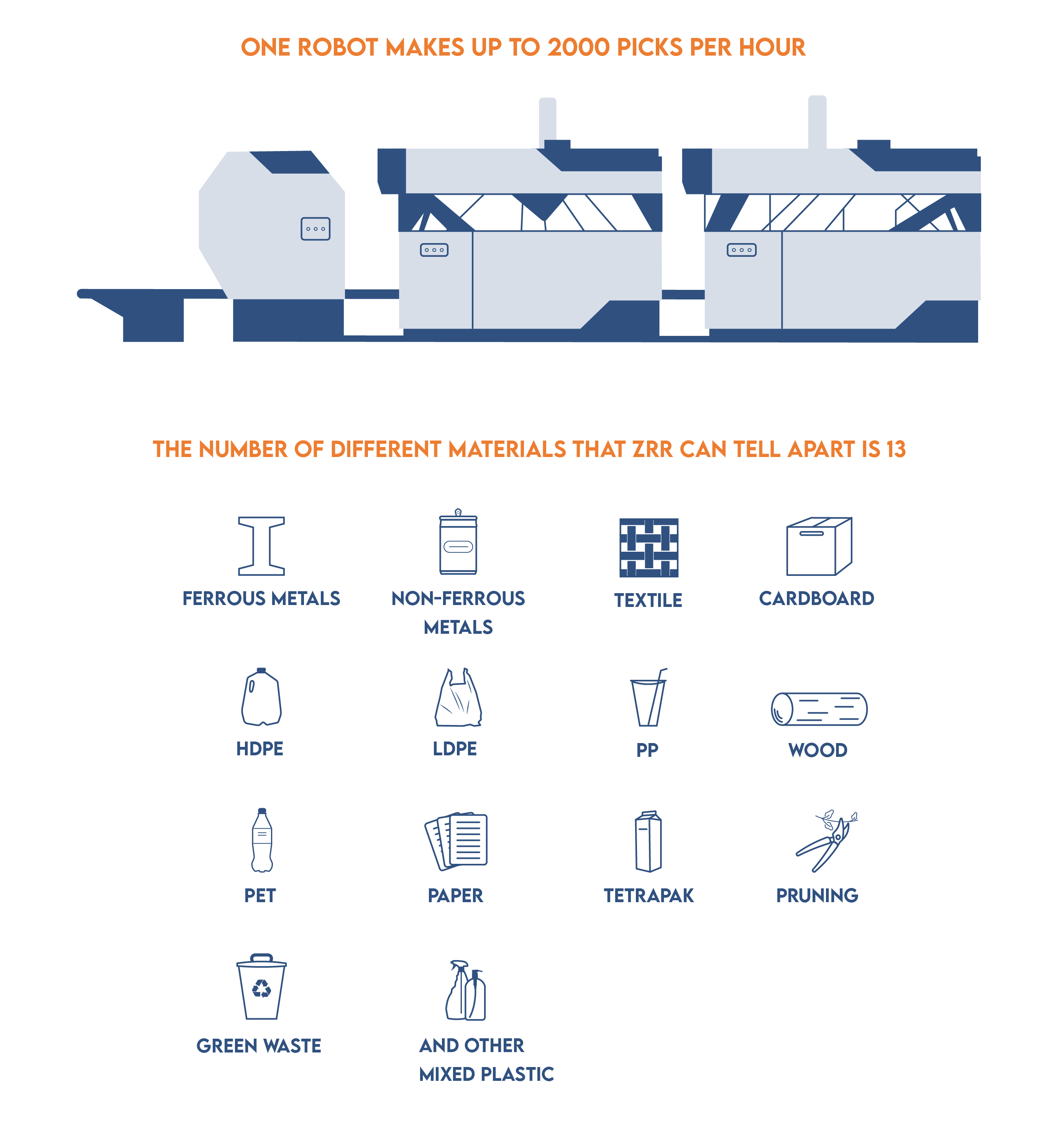ZenRobotics Recycler (ZRR) for Municipal Waste is an EU EIT Climate-KIC funded project that seeks to deploy, train and test an artificial intelligence ZZR2 robot to automate and improve the current municipal waste sorting methods. This cutting edge technology is piloted in the Ecoparc 4 waste treatment plant located in Barcelona, Spain, and operated by Ferrovial Services. This pilot experience can be scaled up and replicated into other waste treatment plants.
NTU International is appointed to analyse the socio-economic and environmental impact of installing this automatised robot. In terms of socio-economic impact, NTU analysed the results of the increase of recovery rates, quality and types, impact on the workers’ wellbeing and occupational health and safety, maintenance and quality of the employment. Besides, NTU analysed the likely environmental impact of this project.
How we did it
In this innovative project, NTU International provided the Socioeconomic Impact Assessment, including the Economic Cost-Benefit Analysis, as well as the Environmental Assessment. These tools present a forum for planning on how to maximise the beneficial impacts of the proposed development (see below).

The assessment concludes that the implementation of ZRR Robot creates more attractive and engaging job opportunities. The ZRR Robot improves the purity and recovery rate of the sorted materials, to provide better financial results. The reduction of waste sent to the landfill and the increase of recovered materials lead to positive environmental effects, through the waste generation and emissions avoided due to recycling.

Impact:
The project’s impact builds upon the three pillars of sustainability:
- Environment: it reduces landfill and increases recovery and reuse.
- Economy: recovering sub-products is profitable for the plant. The more the plant recovers and with higher quality, the more incomes the plant will obtain.
- Society: it is demanded to find new sources of deadstock to create high-value products.
Besides, workers’ wellbeing will improve due to:
- Minimise interaction with waste;
- Minimise exposure to smell and noise;
- Creation of high-value job based on technology in the Ecoparc 4 waste treatment plant.
